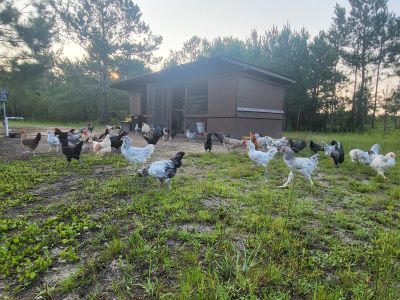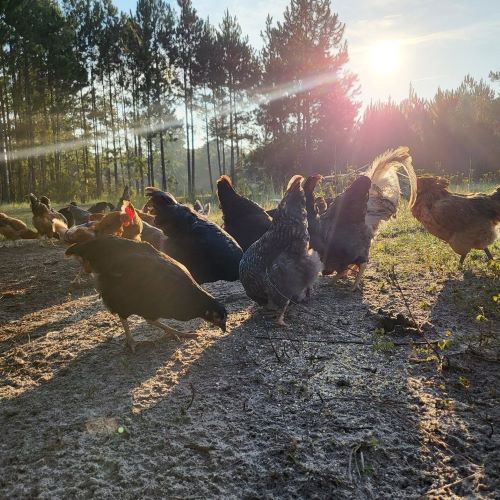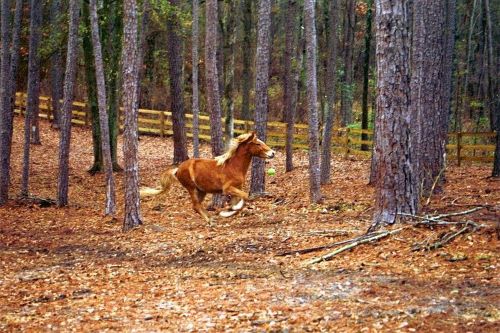Benefits of Chickens in Sustainable Agriculture: Contributions to Pest Control, Soil Enrichment, and Weed Management
Sustainable agriculture is a farming practice that aims to meet the needs of the present generation without compromising the ability of future generations to meet their own needs. It focuses on minimizing environmental impact, promoting biodiversity, and ensuring the long-term viability of agricultural systems. In this context, chickens play a crucial role in sustainable farming practices.
Chickens are not just a source of eggs and meat; they are valuable contributors to a thriving farm ecosystem. Their presence brings numerous benefits, including pest control, soil enrichment, and weed management. By incorporating chickens into sustainable agriculture, farmers can create a more balanced and sustainable farming system.
Throughout this article, we will explore the various ways in which chickens contribute to sustainable agriculture. From their role in pest control to their impact on soil fertility, we will delve into the importance of integrating chickens into farming practices. So, let’s dive in and discover the incredible benefits that chickens bring to the table.
Benefits of Chickens in Sustainable Agriculture
Chickens play a crucial role in sustainable agriculture by providing numerous benefits to the farm ecosystem. In this section, we will explore how chickens contribute to pest control, soil enrichment, and weed management, highlighting their natural abilities and reducing the need for chemical interventions.
Pest Control:
Chickens are excellent natural pest controllers, helping to keep harmful insects, slugs, and pests in check. Their foraging behavior allows them to hunt and consume these pests, reducing the need for chemical pesticides. By introducing chickens to the farm, farmers can rely less on harmful chemicals and promote a healthier environment for both the chickens and other farm animals.
Soil Enrichment
One of the significant contributions of chickens to sustainable agriculture is their role in soil fertility. Through their manure production, chickens contribute to nutrient cycling, enriching the soil with essential elements. Chicken manure is a valuable natural fertilizer, rich in nitrogen, phosphorus, and potassium. When properly managed, chicken manure can improve soil structure, enhance microbial activity, and promote healthy plant growth.
To optimize soil enrichment, farmers can implement rotational grazing systems, allowing chickens to access different areas of the farm. This ensures that their manure is evenly distributed, benefiting the entire farm ecosystem.
Weed Management
Chickens can also assist in weed control, making them valuable allies in sustainable agriculture. Their foraging behavior includes pecking and scratching the ground, which helps to uproot and consume weed seeds. By allowing chickens to roam freely in designated areas, farmers can reduce the need for herbicides and manual weeding.
To maximize the effectiveness of chickens in weed management, farmers can strategically place chicken coops or mobile chicken tractors in areas with weed problems. This targeted approach allows chickens to focus on specific areas, minimizing weed growth and promoting a healthier farm environment.
By harnessing the natural behaviors and abilities of chickens, farmers can significantly reduce their reliance on chemical interventions, promoting a more sustainable and eco-friendly farming system.
Pest Control
Chickens are excellent natural pest controllers, helping to keep harmful insects, slugs, and pests in check. Their foraging behavior allows them to hunt and consume these pests, reducing the need for chemical pesticides. By introducing chickens to the farm, farmers can rely less on harmful chemicals and promote a healthier environment for both the chickens and other farm animals.
Soil Enrichment
One of the significant contributions of chickens to sustainable agriculture is their role in soil fertility. Through their manure production, chickens contribute to nutrient cycling, enriching the soil with essential elements. Chicken manure is a valuable natural fertilizer, rich in nitrogen, phosphorus, and potassium. When properly managed, chicken manure can improve soil structure, enhance microbial activity, and promote healthy plant growth.
To optimize soil enrichment, farmers can implement rotational grazing systems, allowing chickens to access different areas of the farm. This ensures that their manure is evenly distributed, benefiting the entire farm ecosystem.
Weed Management
Chickens can also assist in weed control, making them valuable allies in sustainable agriculture. Their foraging behavior includes pecking and scratching the ground, which helps to uproot and consume weed seeds. By allowing chickens to roam freely in designated areas, farmers can reduce the need for herbicides and manual weeding.
To maximize the effectiveness of chickens in weed management, farmers can strategically place chicken coops or mobile chicken tractors in areas with weed problems. This targeted approach allows chickens to focus on specific areas, minimizing weed growth and promoting a healthier farm environment.
Free-Range Farming and Chicken Welfare
Definition of Free-Range Farming
Free-range farming refers to a farming practice that allows chickens to roam freely outdoors, providing them with access to open spaces and natural environments. Unlike confined or caged systems, free-range farming prioritizes the welfare and well-being of chickens by allowing them to exhibit their natural behaviors.
Chickens in free-range systems have the freedom to explore, forage, and engage in social interactions with other chickens. They are not confined to small cages or limited spaces, which can cause stress and lead to health issues.
Benefits of Free-Range Farming
Free-range farming offers numerous benefits for both chicken welfare and overall farm ecosystem:
- Positive impact on chicken welfare and behavior: By allowing chickens to roam freely, they can engage in natural behaviors such as dust bathing, scratching the ground, and perching. This promotes their physical and mental well-being, reducing stress and improving their overall quality of life.
- More natural diet and lifestyle: Free-range chickens have the opportunity to forage for insects, worms, seeds, and grass, which supplements their diet with natural and varied nutrients. This diverse diet contributes to healthier chickens and, in turn, healthier eggs.
- Healthier and tastier eggs: The natural diet and lifestyle of free-range chickens result in eggs that are richer in flavor, with vibrant yolks and stronger shells. These eggs are often preferred by consumers due to their superior taste and nutritional value.
By embracing free-range farming, homesteaders can ensure the well-being of their chickens while also reaping the benefits of high-quality eggs.
Integrating Chickens with Other Farming Practices
Aquaponics and Hydroponics
Aquaponics and hydroponics are innovative farming methods that can be enhanced by integrating chickens into the system. In aquaponics, chickens play a crucial role in creating a sustainable cycle of nutrient production. The waste produced by chickens, in the form of manure, serves as a valuable source of nutrients for the plants grown in the hydroponic system.
By integrating chickens into aquaponics, the system becomes more self-sufficient and environmentally friendly. The chickens’ waste provides essential nutrients, such as nitrogen and phosphorus, which are absorbed by the plants. In return, the plants filter the water, removing harmful substances and providing clean water for the chickens.
This symbiotic relationship between chickens, plants, and fish in aquaponics creates a closed-loop system that minimizes waste and maximizes resource utilization. The chickens contribute to the overall productivity of the system by providing nutrients for plant growth, while the plants purify the water for the fish and chickens.
Companion Animals on the Farm
In addition to chickens, this homesteader’s farm is home to a variety of companion animals, including cats, dogs, and horses. These animals play a vital role in creating a harmonious farm ecosystem.
Cats are excellent hunters and help control rodent populations on the farm. Their presence helps protect the chicken feed and eggs from pests, ensuring the farm remains free from unwanted intruders. Additionally, cats can provide companionship to the homesteaders and contribute to a sense of well-being on the farm.
Dogs, on the other hand, serve as loyal protectors and can help deter predators from approaching the farm. Their presence can provide a sense of security for both the homesteaders and the chickens. Dogs can also assist in herding livestock, such as chickens or horses, making them valuable assets on a farm.
Horses, although not directly involved in chicken farming, contribute to the overall farm ecosystem. They can help with transportation, plowing fields, and even provide manure for composting, which can be used to enrich the soil. Their presence adds diversity to the farm and can create a more sustainable and self-sufficient environment.
By integrating these companion animals into the farm, the homesteaders create a balanced ecosystem where each animal has a specific role to play. This harmonious coexistence enhances the overall sustainability and well-being of the farm.
Aquaponics and Hydroponics
Aquaponics and hydroponics are innovative farming methods that can be enhanced by integrating chickens into the system. In aquaponics, chickens play a crucial role in creating a sustainable cycle of nutrient production. The waste produced by chickens, in the form of manure, serves as a valuable source of nutrients for the plants grown in the hydroponic system.
By integrating chickens into aquaponics, the system becomes more self-sufficient and environmentally friendly. The chickens’ waste provides essential nutrients, such as nitrogen and phosphorus, which are absorbed by the plants. In return, the plants filter the water, removing harmful substances and providing clean water for the chickens.
This symbiotic relationship between chickens, plants, and fish in aquaponics creates a closed-loop system that minimizes waste and maximizes resource utilization. The chickens contribute to the overall productivity of the system by providing nutrients for plant growth, while the plants purify the water for the fish and chickens.
Companion Animals on the Farm
In addition to chickens, this homesteader’s farm is home to a variety of companion animals, including cats, dogs, and horses. These animals play a vital role in creating a harmonious farm ecosystem.
Cats are excellent hunters and help control rodent populations on the farm. Their presence helps protect the chicken feed and eggs from pests, ensuring the farm remains free from unwanted intruders. Additionally, cats can provide companionship to the homesteaders and contribute to a sense of well-being on the farm.
Dogs, on the other hand, serve as loyal protectors and can help deter predators from approaching the farm. Their presence can provide a sense of security for both the homesteaders and the chickens. Dogs can also assist in herding livestock, such as chickens or horses, making them valuable assets on a farm.
Horses, although not directly involved in chicken farming, contribute to the overall farm ecosystem. They can help with transportation, plowing fields, and even provide manure for composting, which can be used to enrich the soil. Their presence adds diversity to the farm and can create a more sustainable and self-sufficient environment.
By integrating these companion animals into the farm, the homesteaders create a balanced ecosystem where each animal has a specific role to play. This harmonious coexistence enhances the overall sustainability and well-being of the farm.
Conclusion
Chickens play a vital role in sustainable agriculture, contributing to pest control, soil enrichment, and free-range farming. By understanding their importance and integrating them with other farming practices, we can create a thriving and eco-friendly farm ecosystem.
Recap the Importance of Chickens in Sustainable Agriculture
Chickens are not just farm animals; they are valuable partners in sustainable agriculture. Their natural behaviors and characteristics make them excellent contributors to a balanced farm ecosystem.
Emphasize Their Role in Pest Control
One of the key benefits of incorporating chickens into your farm is their ability to control pests naturally. Chickens have a voracious appetite for insects, slugs, and other harmful pests. By allowing them to roam freely, they help reduce the need for chemical pesticides, promoting a healthier and more sustainable farming approach.
Highlight Their Contribution to Soil Enrichment
Chickens are not just great pest controllers; they also play a crucial role in soil enrichment. Through their manure production, chickens contribute to nutrient cycling, improving soil fertility. The nutrient-rich chicken manure serves as a natural fertilizer, providing essential elements for plant growth and overall soil health.
Reinforce the Benefits of Free-Range Farming
Free-range farming is essential for the well-being of chickens and the quality of their products. By allowing chickens access to outdoor areas, they can exhibit their natural behaviors, forage for a diverse diet, and enjoy a healthier lifestyle. This translates to happier chickens and tastier, more nutritious eggs for consumers.
Highlight the Importance of Integrating Chickens with Other Farming Practices
Integrating chickens with other farming practices further enhances the sustainability of your farm. For example, combining chickens with aquaponics and hydroponics systems creates a symbiotic relationship where the waste produced by chickens becomes a valuable nutrient source for plants, while the plants filter and purify the water for the chickens. Additionally, companion animals like cats, dogs, and horses contribute to a harmonious farm ecosystem by providing additional pest control and companionship.
In conclusion, chickens are indispensable in sustainable agriculture. Their role in pest control, soil enrichment, and free-range farming cannot be overstated. By integrating chickens with other farming practices, we can create a thriving and environmentally-friendly farm that benefits both the animals and the land.
Related FAQ
What is sustainable agriculture?
Sustainable agriculture is a farming practice that aims to meet the needs of the present generation without compromising the ability of future generations to meet their own needs. It focuses on minimizing environmental impact, promoting biodiversity, and ensuring the long-term viability of agricultural systems.
How do chickens contribute to sustainable agriculture?
Chickens play a crucial role in sustainable agriculture by providing benefits such as pest control, soil enrichment, and weed management. Their natural behaviors and abilities help reduce the need for chemical interventions, promoting a more balanced and eco-friendly farming system.
What is free-range farming?
Free-range farming refers to a farming practice that allows chickens to roam freely outdoors, providing them with access to open spaces and natural environments. This practice prioritizes the welfare and well-being of chickens by allowing them to exhibit their natural behaviors.
How do chickens contribute to pest control?
Chickens are excellent natural pest controllers. Their foraging behavior allows them to hunt and consume harmful insects, slugs, and pests, reducing the need for chemical pesticides. By introducing chickens to the farm, farmers can rely less on harmful chemicals and promote a healthier environment.
How do chickens contribute to soil enrichment?
Chickens contribute to soil enrichment through their manure production. Chicken manure is a valuable natural fertilizer, rich in essential nutrients like nitrogen, phosphorus, and potassium. When properly managed, chicken manure improves soil structure, enhances microbial activity, and promotes healthy plant growth.
Key Take Away
- Chickens contribute to sustainable agriculture through pest control, soil enrichment, and weed management.
- Their natural behaviors reduce the need for chemical interventions, promoting a more eco-friendly farming system.
- Chickens’ foraging behavior helps control harmful pests, reducing reliance on chemical pesticides.
- Chicken manure is a valuable natural fertilizer that enriches the soil with essential nutrients.
- Free-range farming allows chickens to exhibit natural behaviors, leading to healthier and tastier eggs.
Glossary
- Sustainable Agriculture: A farming practice that meets present needs without compromising future generations’ ability to meet their own needs.
- Pest Control: The management of pests to minimize their impact on crops, often achieved through natural methods like introducing chickens.
- Soil Enrichment: The process of improving soil fertility and structure through the addition of nutrients and organic matter, often aided by chicken manure.
- Free-Range Farming: A farming practice that allows chickens to roam freely outdoors, promoting their welfare and natural behaviors.
- Aquaponics: An innovative farming method that combines aquaculture (fish farming) and hydroponics (growing plants in water) with the help of chickens to create a sustainable nutrient cycle.


